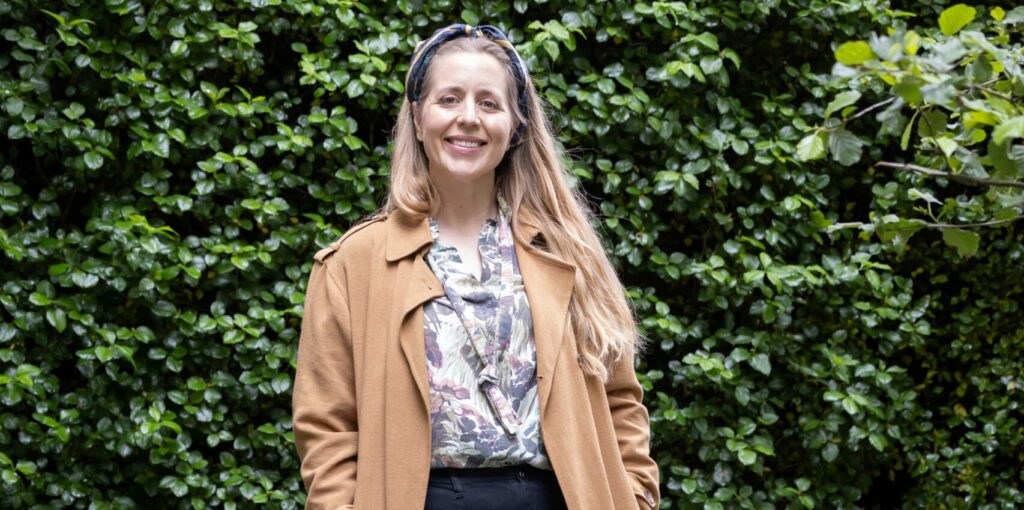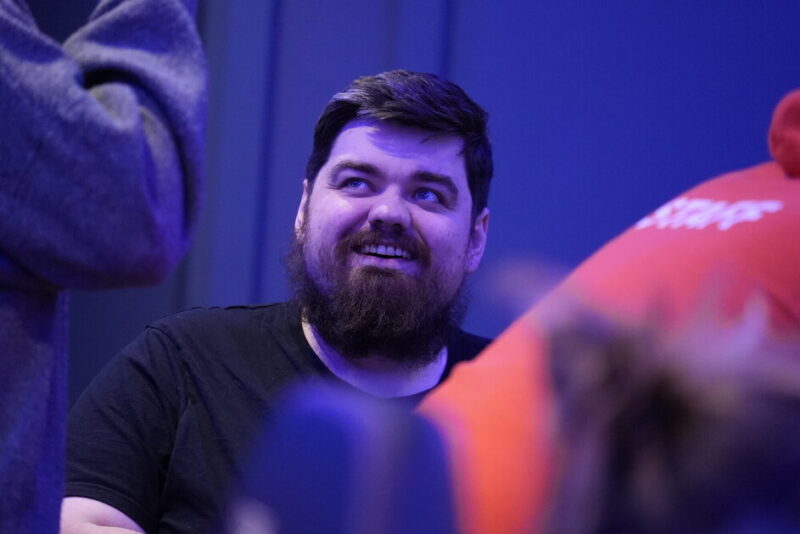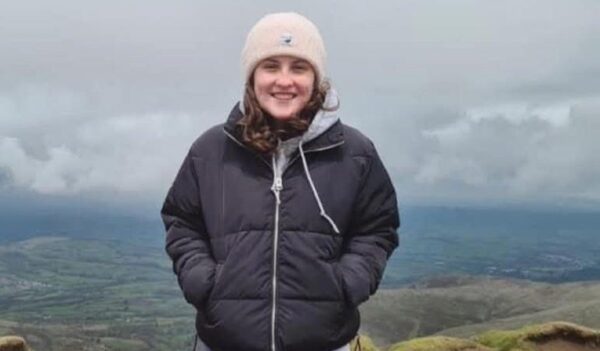This year’s Bidwells 10k Cambridge race starter Emma was diagnosed with FSHD in 2007. Following her diagnosis, she ultimately realised she needed a career change. After three years’ re-training, she is now a professional gardener at a Cambridge University college.
"I am following my dream career" – Bidwells 10k Cambridge race starter story

It’s an honour to open Bidwell’s Cambridge 10k
I’m honoured to be this year’s Bidwells Cambridge 10k race starter. A few years after I was diagnosed, a group of friends and I ran the race for Muscular Dystrophy UK. It was a significant personal achievement, and publicly fundraising for the charity was a big step for me in accepting my diagnosis. It is wonderful to still be part of such an important event.
My diagnosis
I was diagnosed with facioscapulohumeral muscular dystrophy (FSHD) in 2007. Whilst awaiting diagnosis, I took a four-month sabbatical from work. I remember receiving the phone call from the hospital as if it were yesterday. I was on the South Island of New Zealand, not far from Franz Josef Glacier, sitting in a campervan early in the evening.
Something had to change
About a week after I was diagnosed, I injured my lower back whilst snowboarding. This led to multiple treatments over the next eight years, including two surgeries. It took its toll on both my physical and mental health.
“Eventually, I attended a year-long chronic pain management programme and realised I needed to make significant changes to my lifestyle. I began considering whether sitting at a computer for hours a day was sustainable. “
I was fortunate enough to be in a position where I could take some time out to explore new career options and courses, and simply to think. During this time, I felt the greatest sense of contentment when surrounded by nature and when gardening. I realised that my new career was staring me in the face – I wanted to be a gardener! I embarked on three years of formal study and paid work-based training and am now employed full-time as a professional gardener.
Changing my career to fit my passion
I work in one of the colleges at the University of Cambridge. The site covers 50 acres and the garden team work in areas including a woodland, orchard, herbaceous beds and borders, courtyards, a sensory garden, wildflower meadows, a pond, and more! My role varies a lot, but day-to-day will likely include propagating, planting, weeding, deadheading, pruning, and watering. I also get to work on my own projects. For instance, this year I planned and planted two large cutflower beds. In recent weeks, my tasks have included seed-sowing, working from a rowing boat to cut back reeds in the college’s large pond, and driving a tractor to pull a water bowser.
My career helps me manage my condition
Gardening is beneficial for both my mental and physical health.
“Other than at break times, I’m moving one way or another all day, and variety is key for me. I work within my own limitations, pace myself, and change the task regularly. I’m achieving far more than I ever thought I could.”
From a mental-health perspective, it’s the routine, the regular contact with nature and her changing seasons, and the sense of achievement that benefit me the most. Gardening offers visible proof at the end of every day of what has been accomplished, however small the task, and I love that.
Managing fatigue is probably the greatest difficulty I face in working full-time.
“The feeling of fatigue is quite hard to explain. It’s a very ‘heavy feeling’, more than simply feeling tired.”
Gardening can be a physically demanding role and this needs managing. I prioritise getting to work every day and I work around this. It may mean not attending every social event, or leaving them early, or resting after work before I go out. I also take regular time off for holidays to relax. My partner is incredibly supportive and if I feel particularly fatigued, he will take on even more of the household chores.
I know I’ll need to continue reassessing what I can and can’t do at work, but right now the benefits far outweigh any difficulties.
Finding space
Attending the RHS Chelsea Flower Show this year gave me time to reflect on receiving my diagnosis. Garden designer, Ula Maria, created the ‘Muscular Dystrophy UK – Forest Bathing Garden’ show garden which was inspired by a story that highlighted the important role nature can play when receiving and processing a diagnosis. I believe that even on a subconscious level, the space around us matters. It matters that there are green spaces available to everyone, it matters that there are gardeners being paid to maintain them, and it matters that they are accessible.


